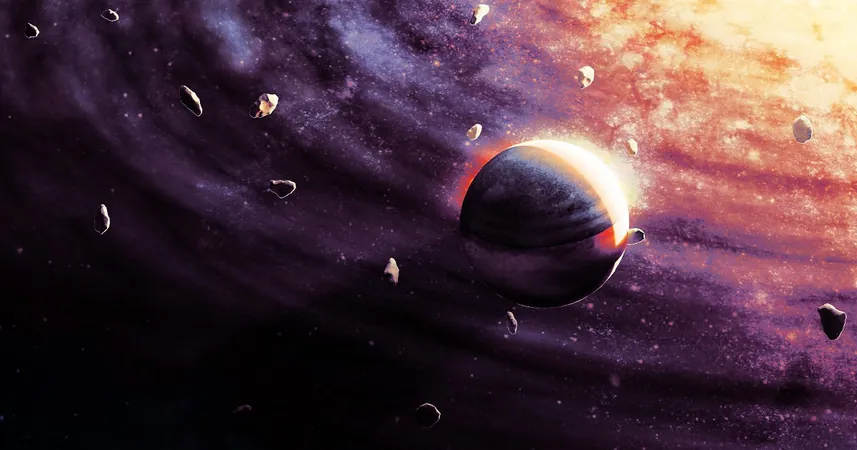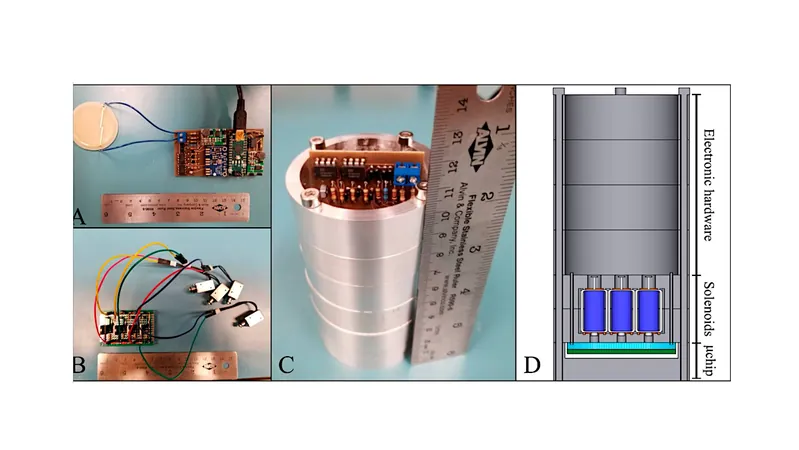
Astronomers Propose Intruder May Have Disrupted the Order of Our Solar System!
2024-12-12
Author: Arjun
For billions of years, the Sun has held sway over the solar system like a monarch, maintaining a delicate balance among the planets through its immense gravitational pull. Despite this orderliness, astronomers are scratching their heads at certain peculiarities in the planetary orbits that hint at a turbulent past—one influenced by external forces.
A newly released, yet-to-be-verified study has ignited discussions, suggesting that an interstellar entity, possibly up to fifty times the mass of Jupiter, may have intruded into our solar system and triggered chaos among our familiar planets. This theory suggests that the gravitational interplay of this colossal intruder could have jostled our solar neighbors out of their original paths, raising intriguing questions about the stability of our cosmic home.
This study aligns with previous investigations that have looked to explain the peculiarities observed in the orbits of various celestial bodies by referencing occasional flybys of external objects. These concepts serve to remind us that even within our solar system, disorder can find a way to disrupt what we perceive as order.
The history of our solar system stretches back roughly 4.6 billion years and began in a spinning cloud of gas known as a protoplanetary disk. From this disk, the planets took shape, adhering to a rotational harmony with relatively flat, coplanar orbits. However, their journeys have been anything but smooth. The phenomenon termed "planetary migration"—which suggests planets like Uranus and Neptune began their lives closer to the Sun and later moved outward—has been the dominant explanation for the peculiar placements of our planets. Some planets may have even been expelled from the solar system entirely during this tumultuous process.
Historically, gravitational interactions between the planets themselves have been thought to cause disturbances and orbital changes. Additionally, the influence of the protoplanetary disk must not be overlooked, as it likely played a significant role in guiding young planets to their current locations.
Yet, the latest findings bring fresh intrigue into the mix. The eccentric orbits of gas giants—in particular Jupiter, Saturn, Uranus, and Neptune—are raising eyebrows among researchers, who argue that these quirks can't be fully accounted for by migration theories alone.
The scientists involved in the study propose a different scenario: What if an enormous rogue planet, dislodged from its own system, made a close flyby of ours? Their simulations suggest that an object between two to fifty times Jupiter's mass passing within 20 astronomical units from the solar system's center could potentially account for these odd orbital patterns. With odds estimated at 1 in 100 for such an occurrence, it's not merely a flight of fancy—the scenario might actually be plausible!
As exciting as the prospect is, the identity of this mysterious intruder remains elusive. Was it a long-lost gas giant wandering the galaxy? The tantalizing notion of a “space invader” has captured the imagination, reminding us that the cosmos can be as chaotic as it is beautiful.
So perhaps we should ask ourselves, could we be living in a cosmic game of chance? Or has the solar system's harmony always been a façade, intricately woven with threads of chaos from the beyond? Stay tuned as the universe slowly unfolds its secrets!




 Brasil (PT)
Brasil (PT)
 Canada (EN)
Canada (EN)
 Chile (ES)
Chile (ES)
 España (ES)
España (ES)
 France (FR)
France (FR)
 Hong Kong (EN)
Hong Kong (EN)
 Italia (IT)
Italia (IT)
 日本 (JA)
日本 (JA)
 Magyarország (HU)
Magyarország (HU)
 Norge (NO)
Norge (NO)
 Polska (PL)
Polska (PL)
 Schweiz (DE)
Schweiz (DE)
 Singapore (EN)
Singapore (EN)
 Sverige (SV)
Sverige (SV)
 Suomi (FI)
Suomi (FI)
 Türkiye (TR)
Türkiye (TR)